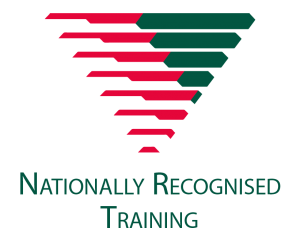
This qualification reflects the role of individuals who service, diagnose and repair electrical systems and components in vehicles in the automotive electrical service and repair industry. No licensing, legislative or certification requirements apply to this qualification at the time of publication.
To achieve AUR30320 Certificate III in Automotive Electrical Technology qualification, a learner must complete and demonstrate competency in 32 units of competency, including 21 core units and 11 elective units.
| Code | Title | Core/Elective |
| AURASA102 | Follow safe working practices in an automotive workplace | Core |
| AURAEA002 | Follow environmental and sustainability best practice in an automotive workplace | Core |
| AURETR112 | Test and repair basic electrical circuits | Core |
| AURETR125 | Test, charge and replace batteries and jump-start vehicles | Core |
| AURETR132 | Diagnose and repair automotive electrical systems | Core |
| AURTTE104 | Inspect and service engines | Core |
| AURETR123 | Diagnose and repair spark ignition engine management systems | Core |
| AURETR131 | Diagnose and repair ignition systems | Core |
| AURETR124 | Diagnose and repair compression ignition engine management systems | Core |
| AURETR135 | Apply knowledge of petrol and diesel engine operation | Core |
| AURETR129 | Diagnose and repair charging systems | Core |
| AURETR130 | Diagnose and repair starting systems | Core |
| AURETR006 | Solder electrical wiring and circuits | Core |
| AURETR007 | Apply knowledge of automotive electrical circuits and wiring systems | Core |
| AURETR009 | Install vehicle lighting and wiring systems | Core |
| AURETR010 | Repair wiring harnesses and looms | Core |
| AURETR027 | Install ancillary electronic systems and components | Core |
| AURETK002 | Use and maintain electrical test equipment in an automotive workplace | Core |
| AURETR128 | Diagnose and repair instruments and warning systems | Core |
| AURETR143 | Diagnose and repair electronic body management systems | Core |
| AURTTA118 | Develop and carry out diagnostic test strategies | Core |
| AURTTK102 | Use and maintain tools and equipment in an automotive workplace | Elective |
| AURAFA103 | Communicate effectively in an automotive workplace | Elective |
| AURTTB101 | Inspect and service braking systems | Elective |
| AURLTB103 | Diagnose and repair light vehicle hydraulic braking systems | Elective |
| AURLTD104 | Diagnose and repair light vehicle steering systems | Elective |
| AURLTD105 | Diagnose and repair light vehicle suspension systems | Elective |
| AURTTA104 | Carry out servicing operations | Elective |
| AURTTK001 | Use and maintain measuring equipment in an automotive workplace | Elective |
| AURLTJ102 | Remove, inspect, repair and refit light vehicle tyres and tubes | Elective |
| AURTTJ011 | Balance wheels and tyres | Elective |
| AURAFA104 | Resolve routine problems in an automotive workplace | Elective |
- All students must be aged 18 years or over at the time of applying for admission to the College.
- Satisfactory completion of Australian Year 11/12 qualification or equivalent.
- If student's educational qualifications do not meet Mars Institute's admission requirements, other factors may be considered at the discretion of Mars Institute. (Please contact admission staff for more details and refer to International Application and Enrolment / Orientation Policy and Procedure policy for further details).
- IELTS band score of overall 6.0 (Academic or General) or equivalent in line with the Department of Education and DOHA regulations (Refer to Application, Enrolment and Orientation policy for further details). Online IELTS will not be accepted. Please refer to further information.
- Learners are required to be competent in written and spoken English and will undertake a Language, Literacy and Numeracy test prior to commencing the training. Refer to LLN policy for further details.
- Students must have a sense of balance and the ability to cope with the physical demands of the training and assessment that involves heavy lifting, manual labour, operation of tools (both manual and power tools) etc.
- Students must have a duty to take reasonable care for their own health and safety at work and to avoid endangering the health and safety of any other person by anything they do, or fail to do, at the workshop.
- Bring Your Own Device (BYOD) Policy is applicable for this course. Your device must have camera and speaker functions. Internet Access with a computer with up-to-date software, including Microsoft Office, Adobe Acrobat Reader, and Adobe Flash Player.
- Basic digital literacy (ability to communicate and access information through digital technologies like internet platforms, social media, search engines, emails, and basic use of MS Office products). Please refer to BYOD Policy for details.
Credit transfer is a process, which provides learners with agreed and consistent credit outcomes based on equivalences in content between matched qualifications. (Source: AUR Implementation guide v7.1)
If a certificate or statement of results is produced and verified, Mars Institute will initiate a credit transfer process in relation to the units as per the training plan. Mars Institute will formally assess all the competencies held by the student against the unit of competencies in this training package making sure that learning is relevant to the unit of competency outcomes.
RPL is an assessment process that assesses an individual’s non-formal and informal learning to determine the extent to which that individual has achieved the required learning outcomes, competency outcomes, or standards for entry to, and/or partial or total completion of, a qualification.
RPL is a form of assessment that acknowledges skills and knowledge gained through:
- Formal/Informal training conducted by industry or education
- Work experience
- Life experience
The main principle of RPL focuses on the outcomes rather than when or where the learning occurred. Evidence of competency is collected by the applicant and submitted to the nominated assessor and assessment is made based on the required industry standard within the relevant training package unit of competency. Refer to Recognition Policy and Credit Transfer Policy for details.
At enrolment of all learning programs MARS’s code of practice states that all candidates for assessment will be offered RPL. This is reiterated in the student handbook and acknowledged in writing.
“Recognition of prior learning is an assessment process that involves assessment of an individual’s relevant prior learning (including formal, informal, and non-formal learning) to determine the credit outcomes of an individual application for credit.” (Source: AQF)
Assessment methods for this qualification include written questions, projects, observations, presentations, case studies, reports, practical activities, and work placement (if applicable ONLY):
- Written Questions (e.g., Multiple choice/True and False/Question and Answer)
- Practical Demonstration (e.g., Third Party report/Simulated Observation/Presentation)
- Assignment (e.g., Project, Case Study, Written Report)
- Vocational Placement
- Recognition of Prior Learning (RPL)
*To be applicable on applicants with prior experience in the field (applied at the time of enrolment only)
Blended mode
This is an intensive program that is delivered through a blended (face-to-face and online) learning/delivery model. Students are required to attend 14 hours/week (Including Tutorials) and 6 hours online based on blended learning (within a 20 hours per week schedule). A student’s online enrolment will never exceed more than 30% of the total course as per National Code standards. Learning/delivery for each unit is 70% face to face and 30% online (National code-standard 8.19). Access to learning, training and assessment material in both the delivery models will be through the Learning Management System.
(but not limited to)
| Certificate III | Certificate IV | Diploma |
|---|---|---|
| AUR30320 - Certificate III in Automotive Electrical Technology | AUR40620 - Certificate IV in Automotive Electrical Technology AUR40520 - Certificate IV in Vehicle Loss Assessing AUR40116 - Certificate IV in Automotive Management | AUR50116 - Diploma of Automotive Management |
Job roles and titles vary across different industry sectors. Possible job titles relevant to this qualification include:
- Motor Mechanic (General)
- Automotive Light Vehicle Mechanical Repair Technician
Source: https://training.gov.au/Training/Details/AUR30620 and https://www.myskills.gov.au/courses/details?Code=AUR30620
Learners who successfully complete and achieve competency in all 32 units of this course will be awarded AUR30320 Certificate III in Automotive Electrical Technology, which is a nationally recognised qualification.
Students who partially complete the course and achieve competency in any unit(s) without completing all 32 units may be eligible for a Statement of Attainment in partial completion of AUR30320 Certificate III in Automotive Electrical Technology.
